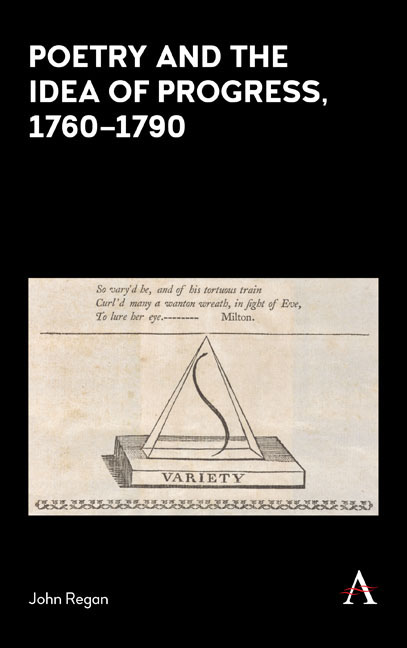Book contents
- Frontmatter
- Contents
- List of Figures
- Acknowledgements
- Introduction
- 1 Progress by Prescription
- 2 Thomas Sheridan and the Divine Harmony of Progress
- 3 ‘There Is a Natural Propensity in the Human Mind to Apply Number and Measure to Every Thing We Hear’: Monboddo, Steele and Prosody as Rhythm
- 4 ‘[C]ut into, distorted, twisted’: Thomas Percy, Editing and the Idea of Progress
- 5 ‘Manners’ and ‘Marked Prosody’: Hugh Blair and Henry Home, Lord Kames
- Afterword: Rude Manners, ‘Stately’ Measures: Byron and the Idea of Progress in the New Century
- Conclusion
- Notes
- Bibliography
- Index
3 - ‘There Is a Natural Propensity in the Human Mind to Apply Number and Measure to Every Thing We Hear’: Monboddo, Steele and Prosody as Rhythm
Published online by Cambridge University Press: 21 June 2018
- Frontmatter
- Contents
- List of Figures
- Acknowledgements
- Introduction
- 1 Progress by Prescription
- 2 Thomas Sheridan and the Divine Harmony of Progress
- 3 ‘There Is a Natural Propensity in the Human Mind to Apply Number and Measure to Every Thing We Hear’: Monboddo, Steele and Prosody as Rhythm
- 4 ‘[C]ut into, distorted, twisted’: Thomas Percy, Editing and the Idea of Progress
- 5 ‘Manners’ and ‘Marked Prosody’: Hugh Blair and Henry Home, Lord Kames
- Afterword: Rude Manners, ‘Stately’ Measures: Byron and the Idea of Progress in the New Century
- Conclusion
- Notes
- Bibliography
- Index
Summary
Part One: Monboddo's Theory of Linguistic Progress
our nature is chiefly constituted of acquired habits […] we are much more creatures of custom and art than of nature. It is a common saying, that habit (meaning custom) is a second nature. I add, that it is more powerful than the first, and in a great measure destroys and absorbs the original nature: For it is the capital and distinguishing characteristic of our species that we can make ourselves, as it were, over again, so that the original nature in us can hardly be seen; and it is with the greatest difficulty that we can distinguish it from the acquired.
In Of the Origin and Progress of Language (1773–92; hereafter the Origin), James Burnett, Lord Monboddo developed a theory of evolutionary linguistics that is now considered an important precursor to Darwinian theories of natural selection. But before its Darwinian legacy was established, the text had the immediate consequence of provoking the reforming plantation owner Joshua Steele into offering a sustained public rebuttal of Monboddo's thesis in the Origin's second volume, that the syllables of modern English were not modulated in tone. Steele's rebuttal took the form of a system of diacritical markings that was akin to musical notation, in his Prosodia Rationalis of 1779. This symbolic system for parsing linguistic sound was employed in defence of the idea of tonally modulated syllabic accent in English speech. As the title of Steele's work suggests, this symbolic defence consisted largely of attempts to rationalize the sense perception of speech, with particular reference to spoken poetry. In ushering in a new analytic granularity, Prosodia Rationalis destabilized received eighteenth-century concepts of the metrical foot, metre in general and the poetic line.
While Monboddo and Steele's prosodic dialogue was specifically concerned with whether English syllables have accents that vary in musical tone rather than loudness, this discussion emerged out of, and was shaped by, the Origin's strident suggestions on the progress of humankind, particularly the relation of its cognition to its languages and what these tell us about human development more widely.
- Type
- Chapter
- Information
- Poetry and the Idea of Progress, 1760 , pp. 75 - 100Publisher: Anthem PressPrint publication year: 2018



